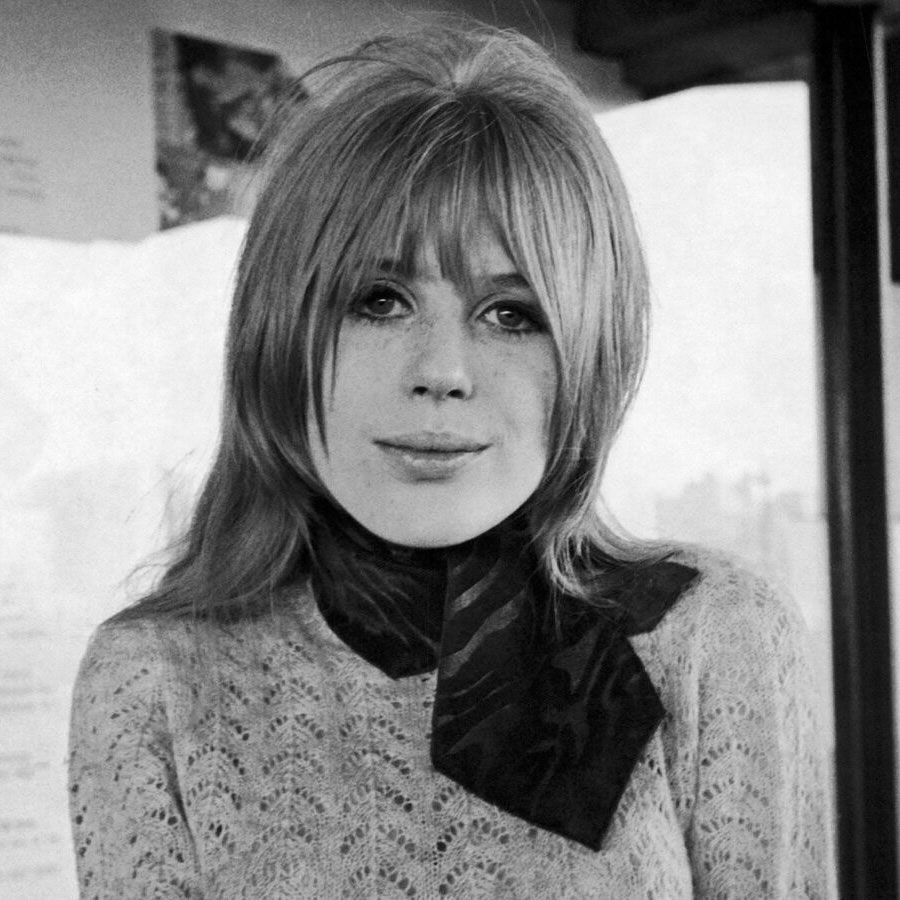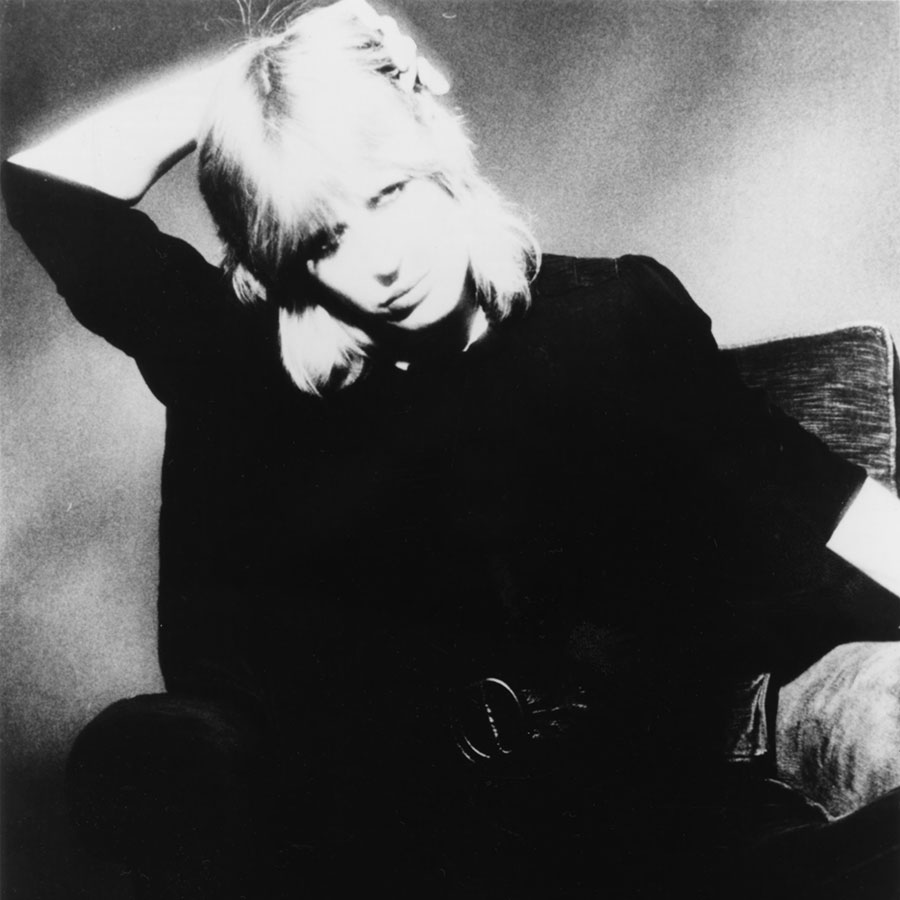Marianne Faithfull, British singer and Rolling Stones muse, died on January 30, 2025. She was 78.
Faithfull’s name conjured up memories of the Rolling Stones during the heights of the ’60s British Invasion. She appeared on the pop scene at 17 with her first recording, “As Tears Go By,” written by Mick Jagger and Keith Richards, her girlish voice far from actual tears. But she became better known for her turbulent romance with Jagger, his party companion in the days before Brian Jones’ death. As Mick’s beautiful, blond, teenage girlfriend, Faithfull ensured her place in the headlines that followed the Stones wherever they went. She was infamous as the semi-clad “girl in the fur rug” after getting busted for drug possession with Jagger and Richards at the latter’s country home in Sussex. She rocked the “establishment” by preaching free love in interviews.
But in late 1969, the relationship with Jagger began to fall apart. By her own admission, Faithfull lived on pills and made several suicide bids, and one of the most ravishing icons of the ’60s became one of rock’s most celebrated casualties. She spent most of the ’70s battling personal trauma, alcoholism and heroin addiction.
Fortunately, her story of bizarre situations, periodic homelessness and drug dependency had a happy ending. She staged a comeback in 1979 with the brilliant Broken English album. Her raspy, cracked voice was full of experience—harsh, nicotine-encrusted and capable of frightening aggression—and the venomous and sometimes pornographic lyrics about guilt and personal violence spoke volumes about her state of mind (critics wrote that such songs as “Why D’Ya Do It” and “The Ballad of Lucy Jordan” were “a cry from the gutter” and “telegrams from hell”).
But drug problems persisted, and Faithful stayed out of circulation for most of the ’80s until 1987’s Strange Weather, another excellent album, comprised largely of old standards (and a haunting remake of “As Tears Go By”) rendered in her ragged voice.
In 1989, Faithfull arrived in Colorado to perform at the Boulder Theater. Her stormy personal life had always had an air of fatalism, but she had survived to become a creative, vital artist. Clean for more than three years, she refused to gloss over her past. While she had called upon her checkered life for inspiration, she was searching for new ways of expressing herself.
“Broken English was a breakthrough, and whatever happened with my voice hasn’t gone away,” Faithfull explained. “I learned how to put emotional intensity into my work where I hadn’t before. I sing about my feelings and my truth, and right now it’s difficult. There have been so many changes in my life and myself, it’s taking time to find my voice again. Obviously, I used to get a lot of my energy from neurotic activity. It’s hard to find that edge now. But I know there’s a way through this, and I’m finding it.”
She occasionally spoke to Keith Richards on the phone. In the early ’80s, he had insisted that the uncredited Faithfull received the royalties she deserved as the lyricist for the Stones’ “Sister Morphine.” “But I’m glad my path hasn’t crossed with the Stones otherwise,” she said. “I needed to sever myself from them, and I did it a long time ago. I don’t want that back.”
By 1994, Faithfull was able to get her chaotic life on track, acting onstage and in films and doing recordings. In Denver to promote Faithfull: An Autobiography, written with David Dalton, she sat drinking tea and smoking in the Brown Palace Hotel lobby prior to a book-signing at the Tattered Cover. Wearing a black blazer and jeans, she looked younger and prettier than photos suggested and was friendly and erudite, with a big smile and an easy, spirited laugh.
“All of the wonderful world-class loons are coming out,” she said. “Some people don’t say much, or they occasionally mutter something about heroin. I can see what they’ve been through. It’s something to do with being human, with shared experience. We recognize each other.
“I’ve tried very hard not to glamorize that part. I hope young people will be okay, but I don’t think they’re going to read my book, go off and shoot up.”
Dish on the Stones in the spirited memoir? “I tried to do a fair, loving portrait of Mick,” she said. “Keith would never be upset with the book—he’s the lost love of my life, the dear ol’ boot. I haven’t seen their tour this time, but I imagine they like having a real bass player.”
Faithfull was channeling her energy into music via a new recording for a friend who died of AIDS, a cover of Patti Smith’s “Ghost Dance” produced by Richards and Don Was. “It was Keith’s day off (from the Stones’ Voodoo Lounge sessions). Everybody trundled into the fucking studio—except Mick. I shouldn’t be nasty about it, poor old thing—he wasn’t invited!”




